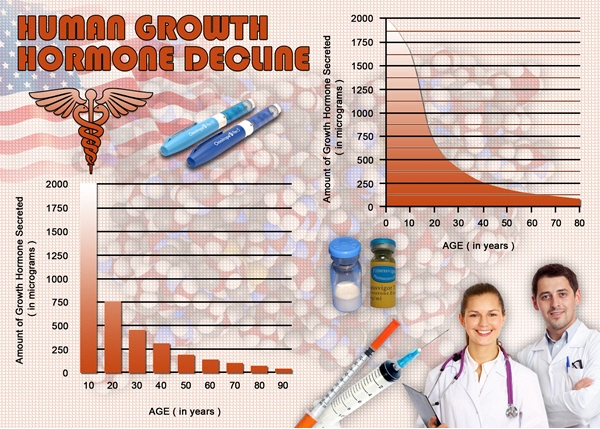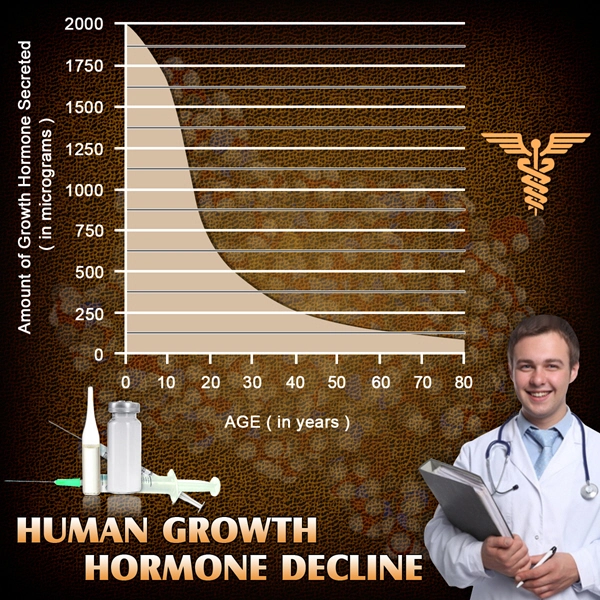Introduction
Erectile dysfunction (ED) is a prevalent condition affecting millions of American males, with significant impacts on quality of life and psychological well-being. Recent research has illuminated a concerning association between ED and neurological disorders, suggesting that men with such conditions may face an elevated risk. This article delves into a cross-sectional study involving over 1200 American men, exploring the intricate relationship between various neurological conditions and the incidence of ED. By understanding these connections, healthcare providers can better tailor interventions and support for affected individuals.
Study Methodology
The study in question surveyed 1200 American males diagnosed with various neurological disorders, ranging from multiple sclerosis and Parkinson's disease to stroke and traumatic brain injuries. Participants were asked to complete a detailed questionnaire regarding their sexual health, with a specific focus on the presence and severity of ED. The data collected was then analyzed to determine the prevalence of ED within this population and to identify any correlations with specific neurological conditions.
Prevalence of ED in Men with Neurological Disorders
The findings of the study revealed a striking prevalence of ED among men with neurological disorders. Approximately 65% of the participants reported experiencing some degree of ED, a rate significantly higher than that observed in the general male population. This high incidence underscores the profound impact that neurological conditions can have on sexual function, necessitating increased awareness and targeted interventions.
Neurological Conditions and ED: A Closer Look
The study further dissected the data to examine the relationship between specific neurological disorders and ED. Men with multiple sclerosis exhibited the highest rates of ED, with 78% reporting symptoms. Similarly, those with Parkinson's disease and stroke showed elevated incidences at 72% and 69%, respectively. Traumatic brain injury also emerged as a significant risk factor, with 63% of affected men experiencing ED. These findings highlight the varying degrees of impact that different neurological conditions can have on sexual health.
Potential Mechanisms Linking Neurological Disorders and ED
Several mechanisms may underlie the association between neurological disorders and ED. Damage to the nervous system can disrupt the neural pathways essential for achieving and maintaining an erection. Additionally, neurological conditions often lead to secondary issues such as depression and anxiety, which can further exacerbate ED. The study's authors suggest that a multifaceted approach, addressing both the physical and psychological aspects of these conditions, may be necessary to effectively manage ED in this population.
Implications for Clinical Practice
The results of this study have significant implications for clinical practice. Healthcare providers treating men with neurological disorders should routinely screen for ED and offer appropriate interventions. This may include pharmacological treatments, such as phosphodiesterase type 5 inhibitors, as well as psychological support and counseling. By addressing ED proactively, clinicians can improve the overall well-being and quality of life of their patients.
Future Research Directions
While this study provides valuable insights into the prevalence of ED among American males with neurological disorders, further research is needed to deepen our understanding of this complex relationship. Longitudinal studies could help elucidate the progression of ED in this population and the efficacy of various treatment modalities. Additionally, exploring the role of lifestyle factors and comorbidities in the development of ED may offer further avenues for prevention and management.
Conclusion
The cross-sectional study of over 1200 American males with various neurological disorders has shed light on the high prevalence of ED within this population. With rates significantly higher than those in the general male population, it is clear that neurological conditions pose a substantial risk factor for sexual dysfunction. By recognizing and addressing this issue, healthcare providers can offer more comprehensive care to their patients, ultimately enhancing their quality of life. As research continues to evolve, the hope is that more effective strategies will emerge to mitigate the impact of neurological disorders on sexual health.

- Lifestyle Changes to Combat Erectile Dysfunction in American Men [Last Updated On: December 29th, 2025] [Originally Added On: February 19th, 2025]
- Unlocking Passion: Strategies for Overcoming Erectile Dysfunction and Enhancing Intimacy [Last Updated On: February 25th, 2025] [Originally Added On: February 24th, 2025]
- Embarking on the Journey from Despair to Victory: Navigating Erectile Dysfunction Challenges Gradually [Last Updated On: February 25th, 2025] [Originally Added On: February 25th, 2025]
- Unveiling the Hidden Stories: Triumph Over Erectile Dysfunction [Last Updated On: February 26th, 2025] [Originally Added On: February 26th, 2025]
- Decoding Desire: Unravelling the Biochemical Basis of Erectile Dysfunction [Last Updated On: February 27th, 2025] [Originally Added On: February 27th, 2025]
- Ascend Beyond Adversities: A Modern Take on Masculinity and Erectile Dysfunction [Last Updated On: February 28th, 2025] [Originally Added On: February 28th, 2025]
- Demystifying Misconceptions: A Comprehensive Guide on Erectile Dysfunction [Last Updated On: February 28th, 2025] [Originally Added On: February 28th, 2025]
- Unraveling the Web: How Affective Processing Impacts Erectile Dysfunction [Last Updated On: March 1st, 2025] [Originally Added On: March 1st, 2025]
- Efficacy Spectrum: Topical Comparison between Erectile Dysfunction Drugs [Last Updated On: March 2nd, 2025] [Originally Added On: March 2nd, 2025]
- Revitalizing Intimacy: Exploring Innovative Treatments and Therapies for Restoring Love and Libido in Relationships [Last Updated On: March 3rd, 2025] [Originally Added On: March 2nd, 2025]
- Advancements in Enhancing Intimacy: A Comprehensive Guide to Modern Medical Interventions in Sexual Health [Last Updated On: March 3rd, 2025] [Originally Added On: March 2nd, 2025]
- The Interplay of Love and Libido: Modern Medicine's Impact on Enhancing Intimacy [Last Updated On: March 2nd, 2025] [Originally Added On: March 2nd, 2025]
- Advancements in Sexual Medicine: Restoring Love and Libido for a Brighter Future [Last Updated On: March 3rd, 2025] [Originally Added On: March 2nd, 2025]
- Reviving Love and Libido: Exploring Innovative Medical Solutions for Intimacy and Relationship Spark [Last Updated On: March 2nd, 2025] [Originally Added On: March 2nd, 2025]
- Exploring Modern Medical Interventions for Enhancing Sexual Health and Intimacy: Hormonal Treatments, Psychological Therapies, and Advanced Erectile Dysfunction Solutions [Last Updated On: March 3rd, 2025] [Originally Added On: March 3rd, 2025]
- Comprehensive Guide to Understanding and Treating Erectile Dysfunction [Last Updated On: March 4th, 2025] [Originally Added On: March 4th, 2025]
- Exploring the Emotional and Psychological Impacts of Erectile Dysfunction on Men [Last Updated On: March 5th, 2025] [Originally Added On: March 5th, 2025]
- Understanding Erectile Dysfunction: Causes, Treatments, and Role of Nitric Oxide [Last Updated On: March 6th, 2025] [Originally Added On: March 6th, 2025]
- The Evolution of Erectile Dysfunction Treatments: From Ancient Remedies to Modern Innovations [Last Updated On: March 7th, 2025] [Originally Added On: March 7th, 2025]
- Advancements in Erectile Dysfunction Treatment: Technology's Impact on American Men's Health [Last Updated On: March 8th, 2025] [Originally Added On: March 8th, 2025]
- The Critical Role of Blood Flow in Erectile Dysfunction: Vascular Health Implications [Last Updated On: March 9th, 2025] [Originally Added On: March 9th, 2025]
- Unraveling the Battle: Testosterone's Influence on Erectile Dysfunction in American Men [Last Updated On: March 12th, 2025] [Originally Added On: March 12th, 2025]
- Unveiling Triumph: Real-Life Journeys Through Erectile Dysfunction Recovery [Last Updated On: March 13th, 2025] [Originally Added On: March 13th, 2025]
- Navigating the Path to Recovery: Understanding and Managing Erectile Dysfunction [Last Updated On: March 15th, 2025] [Originally Added On: March 15th, 2025]
- Unveiling the Truth: Debunking Myths About Erectile Dysfunction in American Men [Last Updated On: March 15th, 2025] [Originally Added On: March 15th, 2025]
- Effective Non-Pharmacological Strategies for Managing Erectile Dysfunction in American Males [Last Updated On: March 18th, 2025] [Originally Added On: March 18th, 2025]
- Overcoming Erectile Dysfunction: A United Approach for Couples [Last Updated On: March 18th, 2025] [Originally Added On: March 18th, 2025]
- Erectile Dysfunction: Cultural Impact, Treatment, and Societal Shifts in American Males [Last Updated On: March 19th, 2025] [Originally Added On: March 19th, 2025]
- Innovative Therapies and Technologies Transforming Erectile Dysfunction Treatment [Last Updated On: March 19th, 2025] [Originally Added On: March 19th, 2025]
- Global ED Treatments: Insights and Options for American Men [Last Updated On: March 19th, 2025] [Originally Added On: March 19th, 2025]
- Exploring Alternative Therapies for Erectile Dysfunction in American Males [Last Updated On: March 19th, 2025] [Originally Added On: March 19th, 2025]
- Managing Erectile Dysfunction: A Holistic Approach for American Males [Last Updated On: March 19th, 2025] [Originally Added On: March 19th, 2025]
- Understanding and Managing Erectile Dysfunction: A Holistic Approach for American Men [Last Updated On: March 20th, 2025] [Originally Added On: March 20th, 2025]
- Telemedicine Revolutionizes ED Treatment: Benefits, Challenges, and Future Prospects [Last Updated On: March 20th, 2025] [Originally Added On: March 20th, 2025]
- Erectile Dysfunction: Treatment Costs, Insurance, and Affordable Options for American Men [Last Updated On: March 21st, 2025] [Originally Added On: March 21st, 2025]
- Erectile Dysfunction: Debunking Myths and Understanding Prevalence in American Males [Last Updated On: March 22nd, 2025] [Originally Added On: March 22nd, 2025]
- Diet and Exercise: Enhancing Libido and Combating Erectile Dysfunction in American Males [Last Updated On: March 22nd, 2025] [Originally Added On: March 22nd, 2025]
- Stress, Sleep Deprivation, and Erectile Dysfunction: A Holistic Approach for American Men [Last Updated On: March 22nd, 2025] [Originally Added On: March 22nd, 2025]
- Exploring Effective Treatments for Erectile Dysfunction: Options and Innovations [Last Updated On: March 22nd, 2025] [Originally Added On: March 22nd, 2025]
- Counseling's Crucial Role in Managing Erectile Dysfunction: A Holistic Approach [Last Updated On: March 22nd, 2025] [Originally Added On: March 22nd, 2025]
- Personalized Medicine Revolutionizes ED Treatment: Tailoring Therapies to Individual Needs [Last Updated On: March 23rd, 2025] [Originally Added On: March 23rd, 2025]
- Exercise as a Holistic Approach to Combatting Erectile Dysfunction in American Males [Last Updated On: March 23rd, 2025] [Originally Added On: March 23rd, 2025]
- Understanding Erection Physiology and Managing Erectile Dysfunction in American Men [Last Updated On: March 24th, 2025] [Originally Added On: March 24th, 2025]
- Wearable Technology Revolutionizes ED Management for American Males [Last Updated On: March 24th, 2025] [Originally Added On: March 24th, 2025]
- Emerging Treatments for Erectile Dysfunction: Novel Therapies and Personalized Medicine [Last Updated On: March 24th, 2025] [Originally Added On: March 24th, 2025]
- Managing Performance Anxiety and Erectile Dysfunction in American Men: Strategies and Solutions [Last Updated On: March 24th, 2025] [Originally Added On: March 24th, 2025]
- Erectile Dysfunction as an Early Indicator of Cardiovascular Health in American Men [Last Updated On: March 25th, 2025] [Originally Added On: March 25th, 2025]
- Work Stress and Its Impact on Erectile Dysfunction in American Men [Last Updated On: March 25th, 2025] [Originally Added On: March 25th, 2025]
- Exploring the Cycle of ED, Depression, and Anxiety in American Men [Last Updated On: March 25th, 2025] [Originally Added On: March 25th, 2025]
- Celebrity Influence on ED Awareness: Encouraging Open Dialogue and Proactive Health Management [Last Updated On: March 25th, 2025] [Originally Added On: March 25th, 2025]
- Erectile Dysfunction in American Men: Causes, Diagnosis, and Holistic Management Strategies [Last Updated On: March 25th, 2025] [Originally Added On: March 25th, 2025]
- Managing Erectile Dysfunction: Causes, Treatments, and Lifestyle Tips for American Men [Last Updated On: March 25th, 2025] [Originally Added On: March 25th, 2025]
- ED Clinics Transform Lives: Innovative Treatments and Holistic Care [Last Updated On: March 25th, 2025] [Originally Added On: March 25th, 2025]
- Managing Chronic Illness and ED: Strategies for American Men's Sexual Health [Last Updated On: March 25th, 2025] [Originally Added On: March 25th, 2025]
- CBT: A Promising Psychological Approach to Treating Erectile Dysfunction in American Males [Last Updated On: March 25th, 2025] [Originally Added On: March 25th, 2025]
- Revolutionizing ED Treatment: Breakthroughs in Science and Technology [Last Updated On: March 26th, 2025] [Originally Added On: March 26th, 2025]
- Nutrition's Role in Managing Erectile Dysfunction: Key Vitamins and Nutrients [Last Updated On: March 26th, 2025] [Originally Added On: March 26th, 2025]
- Vascular Health's Crucial Role in Preventing and Managing Erectile Dysfunction [Last Updated On: March 26th, 2025] [Originally Added On: March 26th, 2025]
- Enhancing Sexual Vitality: Diet, Lifestyle, and Supplements for American Men's Health [Last Updated On: March 26th, 2025] [Originally Added On: March 26th, 2025]
- Erectile Dysfunction: Understanding Prevalence, Psychological Impact, and Self-Esteem Recovery Strategies [Last Updated On: March 26th, 2025] [Originally Added On: March 26th, 2025]
- Navigating Erectile Dysfunction: Strategies for Couples to Maintain Intimacy [Last Updated On: March 26th, 2025] [Originally Added On: March 26th, 2025]
- Nerve Damage: A Critical Cause of Erectile Dysfunction in American Men [Last Updated On: March 26th, 2025] [Originally Added On: March 26th, 2025]
- Innovative Therapies and Technology Transforming Erectile Dysfunction Treatment [Last Updated On: March 27th, 2025] [Originally Added On: March 27th, 2025]
- Herbal Remedies for Erectile Dysfunction: Ginseng, Maca, and More Explored [Last Updated On: March 27th, 2025] [Originally Added On: March 27th, 2025]
- Erectile Dysfunction: Causes, Treatments, and Holistic Management Strategies [Last Updated On: March 27th, 2025] [Originally Added On: March 27th, 2025]
- Restorative Sleep's Impact on Erectile Function in American Men [Last Updated On: March 27th, 2025] [Originally Added On: March 27th, 2025]
- Erectile Dysfunction: Impact, Healing, and Support for American Men and Relationships [Last Updated On: March 28th, 2025] [Originally Added On: March 28th, 2025]
- Physical Therapy: A Holistic Approach to Treating Erectile Dysfunction in American Males [Last Updated On: March 28th, 2025] [Originally Added On: March 28th, 2025]
- Holistic Approaches to Overcome Erectile Dysfunction in American Men [Last Updated On: March 28th, 2025] [Originally Added On: March 28th, 2025]
- Managing Performance Anxiety and Erectile Dysfunction: A Holistic Approach [Last Updated On: March 28th, 2025] [Originally Added On: March 28th, 2025]
- Understanding Erectile Dysfunction: Anatomy, Causes, and Management Strategies [Last Updated On: March 28th, 2025] [Originally Added On: March 28th, 2025]
- Natural and Lifestyle Approaches to Managing Erectile Dysfunction in American Males [Last Updated On: March 29th, 2025] [Originally Added On: March 29th, 2025]
- PDE5 Inhibitors: Revolutionizing Erectile Dysfunction Treatment in American Males [Last Updated On: March 29th, 2025] [Originally Added On: March 29th, 2025]
- Navigating ED Consultations: A Comprehensive Guide for American Men [Last Updated On: March 29th, 2025] [Originally Added On: March 29th, 2025]
- Prostate Health and Erectile Dysfunction: Understanding the Vital Connection for Men [Last Updated On: March 30th, 2025] [Originally Added On: March 30th, 2025]
- Erectile Dysfunction: Holistic Management for American Men's Sexual Health [Last Updated On: March 30th, 2025] [Originally Added On: March 30th, 2025]
- Erectile Dysfunction: Impact, Communication, and Recovery Strategies for Couples [Last Updated On: March 31st, 2025] [Originally Added On: March 31st, 2025]
- Erectile Dysfunction: Harnessing Positivity and Mental Strategies for American Men [Last Updated On: April 1st, 2025] [Originally Added On: April 1st, 2025]
- Erectile Dysfunction in American Men: Causes, Stigma, and Effective Management Strategies [Last Updated On: April 3rd, 2025] [Originally Added On: April 3rd, 2025]
- Transforming ED Challenges into Opportunities for Deeper Relationship Intimacy [Last Updated On: April 4th, 2025] [Originally Added On: April 4th, 2025]



List of USA state clinics - click a flag below for blood testing clinics.
Word Count: 622


















































